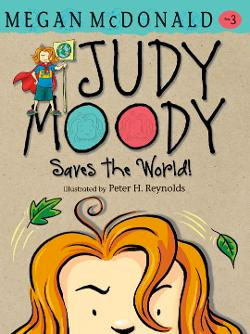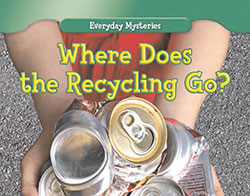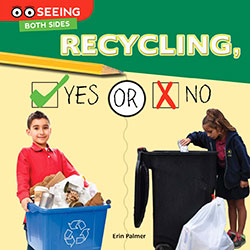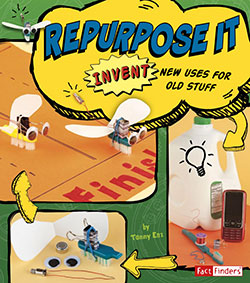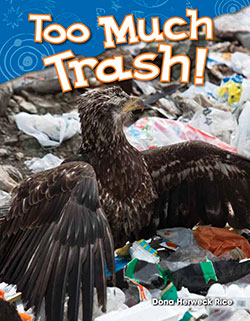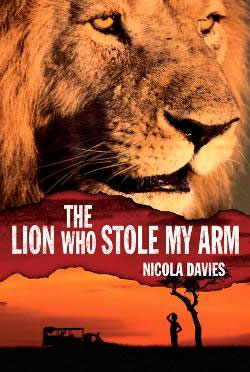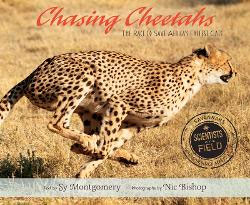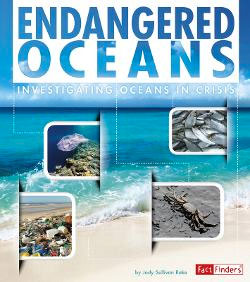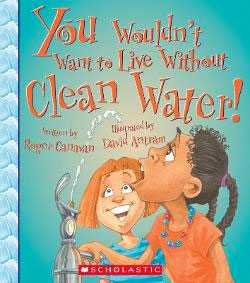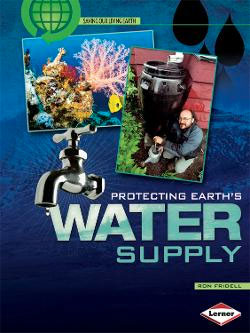Premier Solution:
Ecoliteracy
What is ecoliteracy, how can educators support it
and why does it matter?
Ecoliteracy is the intersection of ecology and social and emotional understanding. It teaches students to become conscious of the natural world and understand how nature sustains all life.
Many educators incorporate fiction, nonfiction, tools such as Google Earth, social networking and meaningful field trips to build ecoliteracy lesson plans.
The goal is to develop empathy for all things in the natural world – plants, water, animals and beyond – and turn it into action.
© 2016 Google Inc. All rights reserved. Google Earth is a trademark of Google Inc.
Ecoliteracy Titles
K-3 – Recycling and Upcycling
Judy Moody Saves the World
Judy is amazed to learn about the destruction of the rain forest, the endangered species (not) in her own backyard and her own family's crummy recycling habits. Now she's in a mood to whip the planet into shape – or her name isn't Judy Monarch Moody!

RESOURCES
| Teacher's Guide |
| More about this title |
Everyday Mysteries series
Featured title: Where Does the Recycling Go?
Detailed diagrams and colorful photos help young readers discover the truth behind everyday mysteries like where our electricity comes from, or what happens to plastic bottles after we recycle them.

RESOURCES
| More about this series |
Seeing Both Sides series
Featured title: Recycling, Yes or No
Seeing Both Sides is a series that can be used to introduce writing techniques for opinion pieces, with this title focusing on recycling topics.

RESOURCES
| More about this series |
Repurpose It: Invent New Uses for Old Stuff
Create amazing inventions and help the environment at the same time. In Repurpose It, you'll invent a solar still, a bug robot, a textbook safe and many other resourceful contraptions.

RESOURCES
| More titles like this from Capstone |
Essential Earth and Space Science Concepts
Featured title: Too Much Trash!
Young readers are introduced to three science content areas – life, physical, and Earth and space – that support Next Generation Science Standards in these beginner volumes.

RESOURCES
| More about this series |
Ecoliteracy Titles
3-6 – Conservation Efforts on Land and Water
The Lion Who Stole My Arm
After Pedru loses his arm in a lion attack, he vows revenge on the lion that made him unable to become a great hunter like his father, but questions his resolve when he gets the opportunity to work with animal researchers.

RESOURCES
| More about this title |
Scientists in the Field
Featured title: Chasing Cheetahs: The Race to Save Africa's Fastest Cats
Far from the research laboratory, these titles show firsthand adventures in the great outdoors – from climbing into a snake den to tracking wolves.

RESOURCES
| Teacher's Guide |
| More about this series |
Fact Finders: Endangered Earth series
Featured title: Endangered Oceans: Investigating Oceans in Crisis
Learn all about the world's invaluable resources and the causes and effects of human activity, and discuss ways to help protect the Earth's resources.

RESOURCES
| More about this series |
You Wouldn't Want to Live Without… series
Featured title: You Wouldn't Want to Live Without Clean Water
Starting from these thought-provoking questions, each title takes students on a historical journey to see how people coped in the past without modern inventions.

RESOURCES
| More about this series |
Saving Our Earth series
Featured title: Protecting Earth's Water Supply
Saving Our Living Earth explores a wide variety of health-oriented topics with fictional case studies and a magazine-style layout.

RESOURCES
| Teacher's Guide |
| More about this series |
